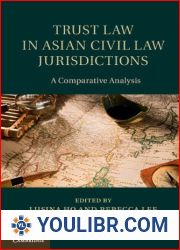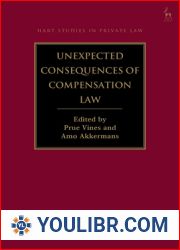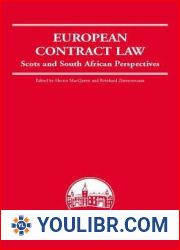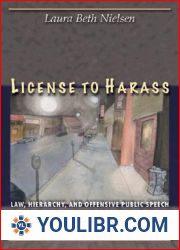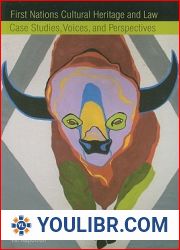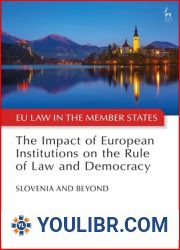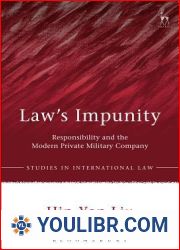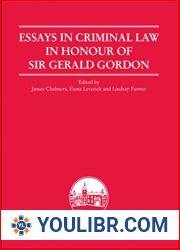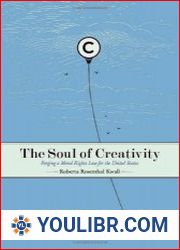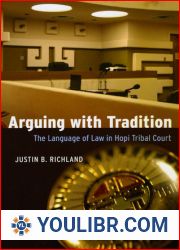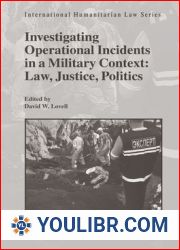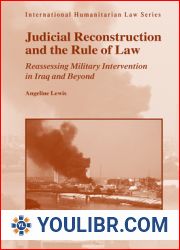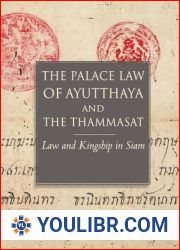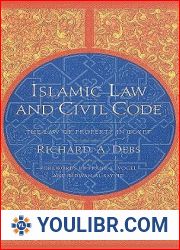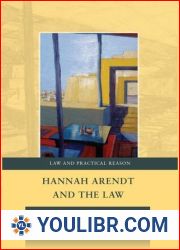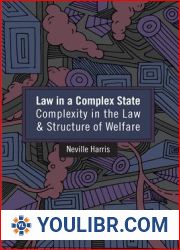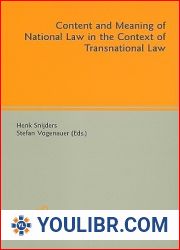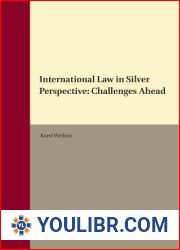
BOOKS - Forgiveness Work: Mercy, Law, and Victims' Rights in Iran

Forgiveness Work: Mercy, Law, and Victims' Rights in Iran
Author: Arzoo Osanloo
Year: June 23, 2020
Format: PDF
File size: PDF 7.3 MB
Language: English

Year: June 23, 2020
Format: PDF
File size: PDF 7.3 MB
Language: English

The book "Forgiveness Work: Mercy, Law, and Victims' Rights in Iran" offers a unique perspective on the Iranian justice system, focusing on the concept of forgiveness as a right of victims and their families in the aftermath of violent crimes. The author, Arzoo Osanloo, explores the Qur'anic principles that underpin the country's criminal codes and the informal network of individuals who contribute to the process of negotiating reconciliation between victims and perpetrators. Through extended interviews and firsthand observations of more than eighty murder trials, the book delves into the reasons why some families choose to forgive the perpetrators of their loved ones' murders, and how this process can lead to a more compassionate and restorative form of justice. One of the key themes of the book is the tension between retribution and forgiveness in the Iranian justice system.
Книга «Работа прощения: милосердие, закон и права жертв в Иране» предлагает уникальный взгляд на иранскую систему правосудия, фокусируясь на концепции прощения как права жертв и их семей после насильственных преступлений. Автор, Арзу Осанлу, исследует коранические принципы, лежащие в основе уголовных кодексов страны, и неформальную сеть лиц, которые вносят вклад в процесс переговоров о примирении между жертвами и преступниками. Благодаря расширенным интервью и личным наблюдениям за более чем восьмьюдесятью судебными процессами по убийствам, книга углубляется в причины, по которым некоторые семьи предпочитают прощать виновных в убийствах своих близких, и как этот процесс может привести к более сострадательной и восстановительной форме правосудия. Одна из ключевых тем книги - напряжение между возмездием и прощением в иранской системе правосудия.
livre « travail du pardon : la miséricorde, le droit et les droits des victimes en Iran » offre une vision unique du système judiciaire iranien, en se concentrant sur le concept du pardon en tant que droits des victimes et de leurs familles après les crimes violents. L'auteur, Arzu Osanlu, explore les principes coraniques qui sous-tendent les codes pénaux du pays et un réseau informel de personnes qui contribuent au processus de négociation de la réconciliation entre les victimes et les criminels. Grâce à des entrevues élargies et à des observations personnelles sur plus de huit procès pour meurtre, le livre explore les raisons pour lesquelles certaines familles préfèrent pardonner les auteurs des meurtres de leurs proches et comment ce processus peut conduire à une forme de justice plus compassionnelle et réparatrice. L'un des thèmes clés du livre est la tension entre représailles et pardon dans le système judiciaire iranien.
libro «La obra del perdón: misericordia, ley y derechos de las víctimas en Irán» ofrece una visión única del sistema de justicia iraní, centrándose en el concepto del perdón como derecho de las víctimas y sus familias tras los crímenes violentos. autor, Arzu Osanlu, explora los principios coránicos que sustentan los códigos penales del país y la red informal de personas que contribuyen al proceso de negociación de la reconciliación entre víctimas y delincuentes. A través de extensas entrevistas y observaciones personales de más de ochenta juicios de homicidios, el libro profundiza en las razones por las que algunas familias optan por perdonar a los responsables de los asesinatos de sus seres queridos, y cómo este proceso puede llevar a una forma de justicia más compasiva y restaurativa. Uno de los temas clave del libro es la tensión entre represalias y perdón en la justicia iraní.
O livro «Trabalho do perdão: misericórdia, lei e direitos das vítimas no Irã» oferece uma visão única do sistema de justiça iraniano, focando no conceito de perdão como direito das vítimas e de suas famílias após crimes violentos. O autor, Arzu Osanlu, explora os princípios corais que fundamentam os códigos criminais do país e a rede informal de pessoas que contribuem para o processo de negociação da reconciliação entre vítimas e criminosos. Com entrevistas ampliadas e observações pessoais de mais de oito processos de homicídios, o livro aprofundou-se nas razões pelas quais algumas famílias preferem perdoar os responsáveis pelas mortes de seus entes queridos, e como este processo pode levar a uma forma mais compassiva e reparadora de justiça. Um dos temas-chave do livro é a tensão entre retaliação e perdão no sistema de justiça iraniano.
Il lavoro del perdono: la misericordia, la legge e i diritti delle vittime in Iran offre una visione unica del sistema giudiziario iraniano, focalizzandosi sul concetto di perdono come diritto delle vittime e delle loro famiglie dopo i crimini violenti. L'autore, Arzu Osanlu, esplora i principi coranici alla base dei codici penali del paese e la rete informale di persone che contribuiscono al processo di riconciliazione tra vittime e criminali. Con interviste estese e osservazioni personali su oltre otto processi per omicidio, il libro approfondisce le ragioni per cui alcune famiglie scelgono di perdonare i responsabili degli omicidi dei loro cari, e come questo processo possa portare a una forma di giustizia più compassionevole e riparativa. Uno dei temi chiave del libro è la tensione tra vendetta e perdono nel sistema giudiziario iraniano.
Das Buch „The Work of Forgiveness: Mercy, Law and Victim Rights in Iran“ bietet eine einzigartige Perspektive auf das iranische Justizsystem und konzentriert sich auf das Konzept der Vergebung als Recht der Opfer und ihrer Familien nach Gewaltverbrechen. Der Autor, Arzu Osanlu, untersucht die koranischen Prinzipien, die den Strafgesetzbüchern des Landes zugrunde liegen, und das informelle Netzwerk von Personen, die zum Prozess der Versöhnungsverhandlungen zwischen Opfern und Tätern beitragen. Mit ausführlichen Interviews und persönlichen Beobachtungen von mehr als achtzig Mordprozessen geht das Buch auf die Gründe ein, warum einige Familien es vorziehen, den Verantwortlichen für die Morde an ihren Angehörigen zu vergeben, und wie dieser Prozess zu einer mitfühlenderen und restaurativeren Form der Gerechtigkeit führen kann. Eines der Hauptthemen des Buches ist die Spannung zwischen Vergeltung und Vergebung im iranischen Justizsystem.
''
Affetme Çalışması: İran'da Merhamet, Hukuk ve Mağdur Hakları, İran adalet sistemine benzersiz bir bakış açısı sunarak, şiddet içeren suçlardan sonra mağdurlar ve aileleri için bir hak olarak affetme kavramına odaklanıyor. Yazar Arzu Osanlu, ülkenin ceza kanunlarının arkasındaki Kuran ilkelerini ve mağdurlar ile failler arasındaki uzlaşma müzakerelerine katkıda bulunan gayri resmi bireyler ağını araştırıyor. Kitap, seksenden fazla cinayet davasıyla ilgili genişletilmiş röportajlar ve kişisel gözlemler yoluyla, bazı ailelerin sevdiklerini öldürmekten sorumlu olanları affetmeyi seçmelerinin nedenlerini ve sürecin nasıl daha şefkatli ve onarıcı bir adalet biçimine yol açabileceğini araştırıyor. Kitabın ana temalarından biri, İran adalet sisteminde cezalandırma ve affetme arasındaki gerilimdir.
يقدم عمل المغفرة: الرحمة والقانون وحقوق الضحايا في إيران منظورًا فريدًا لنظام العدالة الإيراني، مع التركيز على مفهوم التسامح كحق للضحايا وعائلاتهم بعد جرائم العنف. 3-1 يستكشف صاحب البلاغ، أرزو أوسانلو، المبادئ القرآنية الكامنة وراء قوانين العقوبات في البلد والشبكة غير الرسمية للأفراد الذين يساهمون في عملية مفاوضات المصالحة بين الضحايا والجناة. من خلال المقابلات الموسعة والملاحظات الشخصية لأكثر من ثمانين محاكمة قتل، يتعمق الكتاب في الأسباب التي تجعل بعض العائلات تختار مسامحة المسؤولين عن قتل أحبائهم، وكيف يمكن أن تؤدي العملية إلى شكل أكثر تعاطفًا وإصلاحية من العدالة. أحد الموضوعات الرئيسية للكتاب هو التوتر بين الانتقام والتسامح في نظام العدالة الإيراني.







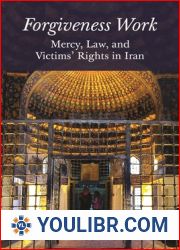
 49
49  2 TON
2 TON

